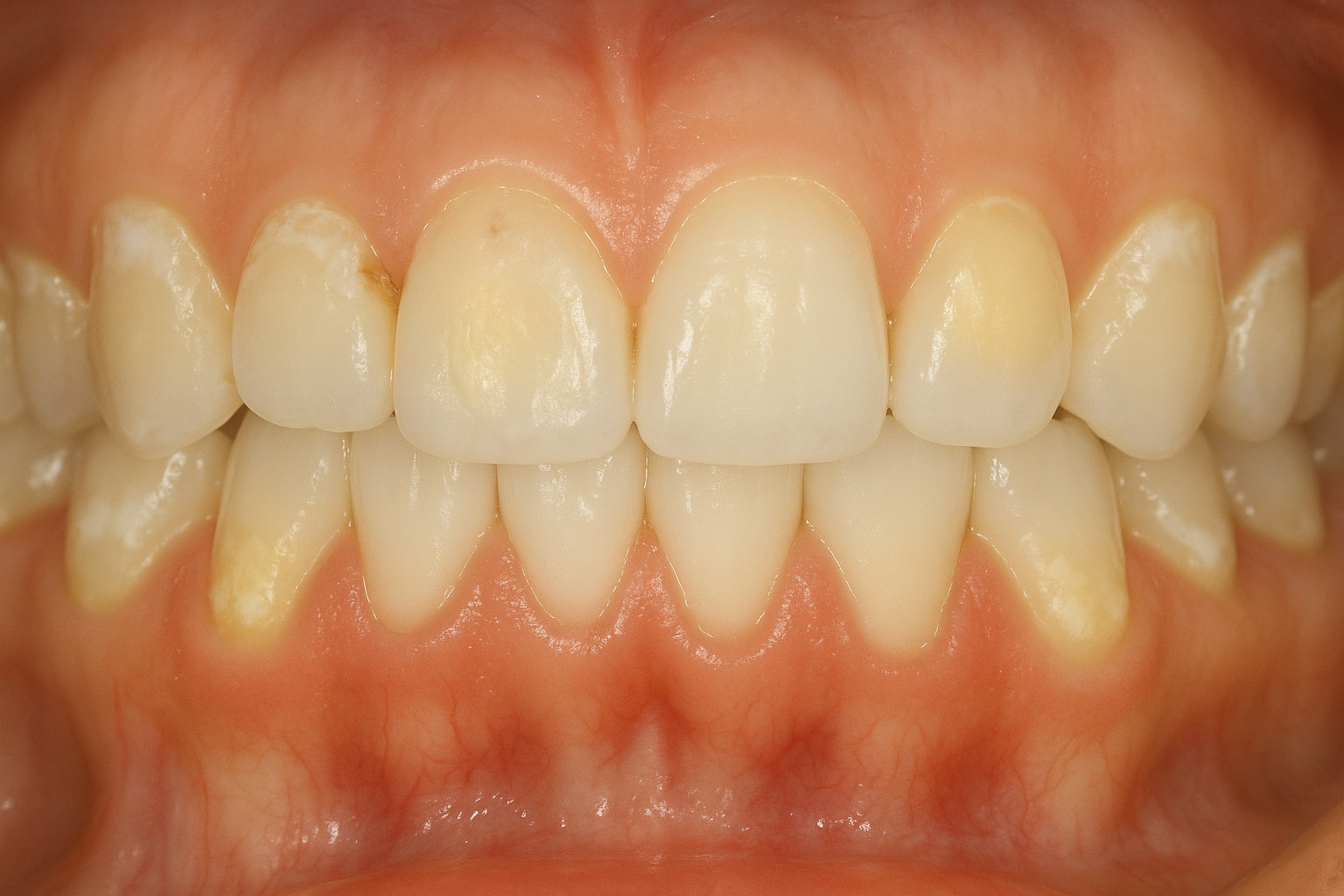White Spot Lesions
Have you noticed white spots on your teeth? Your dentist may refer to these as white spot lesions or tooth demineralisation. These are early signs of enamel damage, often appearing as bright white patches that stand out from the rest of the tooth surface. They usually result from prolonged plaque accumulation and poor oral hygiene.
What Causes Demineralisation / White Spot Lesions?
The main cause of white spot lesions is inadequate plaque removal, which leads to acid-producing bacteria eroding the enamel. A diet high in sugar and processed foods can also increase the risk, as it fuels plaque build-up and accelerates enamel breakdown.
Common causes include:
- Poor brushing and flossing habits
- High-sugar diet
- Orthodontic appliances like braces that trap plaque
Symptoms and Concerns
Symptoms of tooth demineralisation can vary, but may include:
- Visible white spots—often near the gum line or between teeth
- Tooth sensitivity to cold or sweet foods and drinks
- Increased staining or enamel chipping, especially near the gum margins
- In some cases, the white spots may progress deeper into the tooth, reaching the dentine layer and requiring more extensive treatment.
How to Fix White Spot Lesions / Demineralisation
The treatment for white spot lesions depends on how advanced the enamel damage is. Early-stage lesions can sometimes be reversed or halted without invasive procedures.
Effective treatment options include:
- Improving oral hygiene practices: Brush twice daily and floss regularly
- Reducing sugar intake and improving your diet
- Scheduling regular dental check-ups, cleans, and x-rays to monitor progress
- Using high-fluoride toothpaste or prescription dental products as recommended by your dentist
- If the enamel has significantly broken down, restorative treatments such as fillings, enamel microabrasion, or even veneers may be required.
Prevention and Maintenance
Preventing tooth demineralisation and white spots is achievable with consistent care and healthy habits:
- Brush thoroughly twice a day with fluoride toothpaste
- Floss daily to clean between teeth and prevent plaque build-up
- Maintain a balanced diet low in sugar
- Ask your dental professional about fluoride treatments, toothpastes, or remineralising creams if you’re at higher risk
Book Your Consultation at Dental at Keys
If you’re interested in checking your teeth for white spot lesions in Keysborough, we invite you to visit Dental at Keys for a personalised consultation. Our experienced team will assess your specific needs, provide expert recommendations, and help you decide on the most suitable treatment option for your demineralised teeth.
Common Questions about Demineralised Teeth
Can white spots disappear after teeth whitening?
No, teeth whitening does not remove white spots. In fact, whitening treatments may make them appear more prominent because the whitening process can dehydrate teeth further and make it appear whiter. This then contrasts more with the healthy surrounding enamel.
Why do I have white spots on my teeth after braces?
Braces can make it harder to maintain proper oral hygiene. When plaque builds up around the brackets, it can lead to enamel demineralisation. This is why thorough brushing and flossing are crucial during orthodontic treatment.
Are white spot lesions a sign of cavities?
White spot lesions are a precursor to cavities. If left untreated, they can progress deeper into the tooth and form a cavity, which then requires a filling or other dental restoration.



